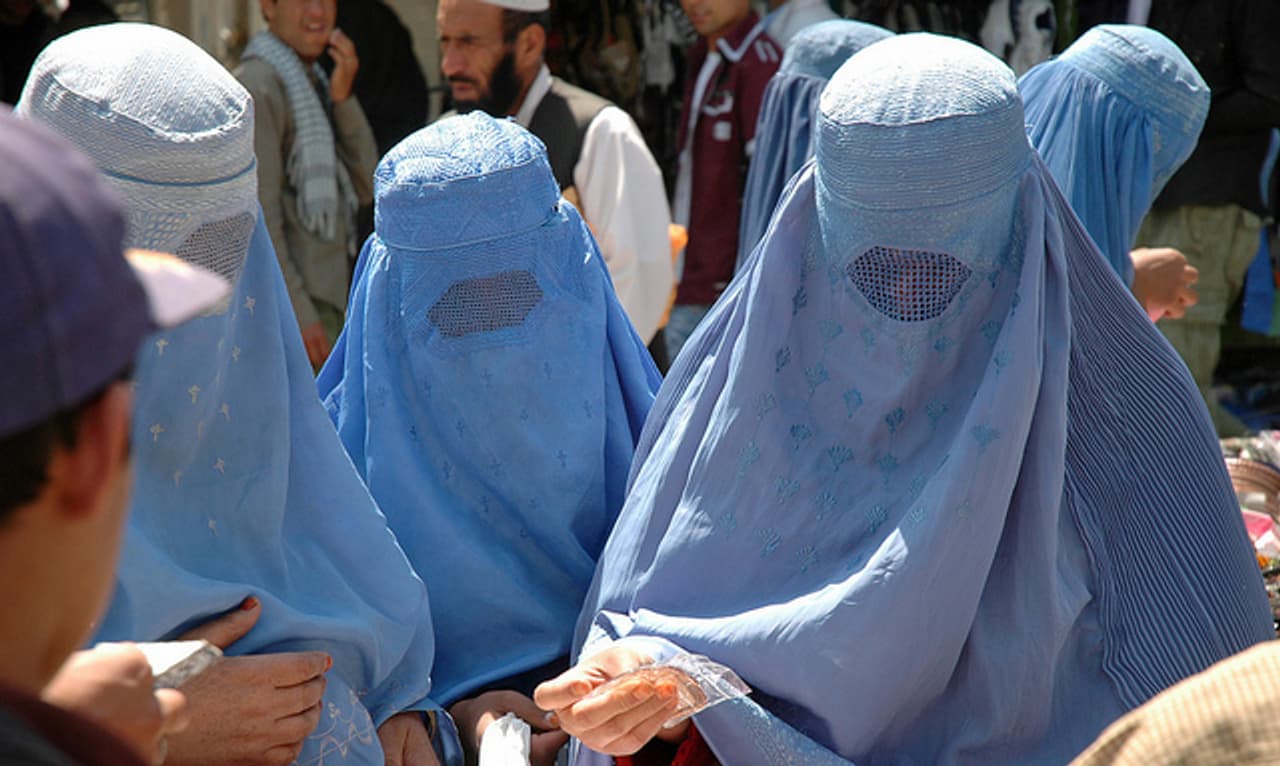
Imprisoning Afghan women and children for ‘moral crimes’
In Afghanistan domestic violence, forced and underage marriage go largely unpunished. But women who flee the abuse are often imprisoned; locked up for so-called ‘moral crimes.’ This despite the fact that these offenses do not exist in Afghanistan’s penal code.
The opening paragraph of a new Human Rights Watch (HRW) report makes for harrowing reading. It is the story of a 12 year old Afghan girl: forced to marry a man nearly twice her age, the man drinks and uses opium. He beats his adolescent wife and daughters. After a particularly savage assault the wife and children flee.
It is a sad irony that a country with so few resources for justice is squandering them punishing women for actions not legally defined as crimes.
After a year, when the wife returns to the region to live near her parents, she is arrested and jailed. Along with her children the women is locked up for seven years, for the ‘moral crime’ of running away.
This account of a now 22-year-old woman is taken from the report ‘I had to run away’ – Women and Girls Imprisoned for ‘Moral Crimes’ in Afghanistan, published this week. After interviewing 58 women and girls in Afghan jails this is a stark expose of a cruel injustice in Afghan life.
HRW conscientiously explains there has been progress in protecting Afghan women’s rights. Access to work, education and healthcare have improved. But the stories told reveal that these improvements are dwarfed by the scale of the overall problem.
‘Bad’ and ‘immoral’ women
Official statistics are hard to come by in Afghanistan, but HRW estimates 400 women and girls have been locked up for these so-called crimes. They make up half the adult female, and almost all the adolescent female prison population.
As the report observes, it is a sad irony that a country with so few resources for justice is squandering them punishing women for actions that are not legally defined as crimes.
With rare exception, the abuse and violence that drove the women away, goes unheeded.
These women are arrested on the word of their fathers or husbands. The police pick them up because a man has described them as ‘bad’ or ‘immoral,’ the report explains. With rare exception, the abuse and violence that drove the women away, goes unheeded.
When HRW investigators challenged prosecutors as to why they prosecute women for moral crimes, but do not investigate these allegations of rape and violence, the typical response is mirth:
These are women ‘of bad moral character’ who fabricate their stories, say the officials. Or the abuse ‘was not severe enough to warrant punishing the husband.’ That excuse, the report declares, was used by a prosecutor in a case where a woman had fled her home after being stabbed repeatedly in the head, chest and arms – with a screwdriver.
Distressingly HRW illustrates how such women still feel they are somehow to blame for their fate; that their punishment is somehow deserved. Others express fears that prison may not even be the worst of their troubles. They suffer the threat of murder by their family members on their release – for bringing them dishonour.
Nato forces are mooted to leave Afghanistan in 2014 and over the last 13 months security has been drawing down. Following US soldier Robert Bales’ alleged massacre of 17 Afghan men, women and children, the calls to get out of Afghanistan as soon as possible are growing louder. Whenever the dust settles behind the last departing ISAF troops they will leave behind a country where women’s lives are little better than when they arrived.
You can read the report here and an Human Rights Watch picture essay here.




